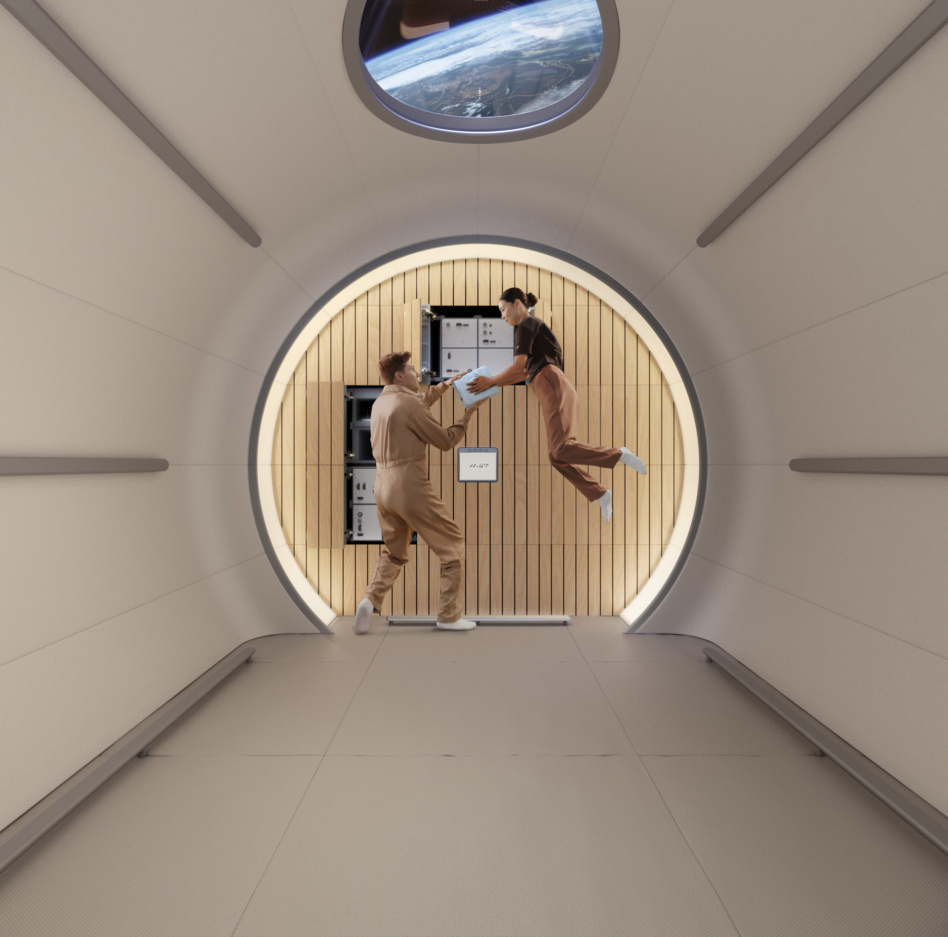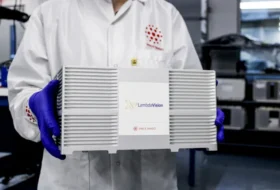Colorado Springs, CO—Vast’s Haven-1 space station, a model of which was on display this week at Space Symposium, features a sleek interior, wood paneling, and a window to gaze at the stars. But while the station may look more luxurious than the industrial ISS it’s gunning to replace, CEO Max Haot was clear that the touches of comfort weren’t designed with billionaire vacationers in mind.
“We’re not interested in flying tourists,” he said, highlighting the sovereign and scientific aims of the station. “We felt that applying high design…would help with the key mission objectives. If you sleep better, if you feel better, if it’s easier to use and comprehend and less confusing…you are likely to perform better doing your job, which is operating a laboratory, doing outreach and so on.”
Partnering up: During the show, Vast announced new partnerships, including:
- A strategic agreement with the Center for the Advancement of Science in Space, or CASIS, which oversees scientific research aboard the ISS. Vast has said it intends to compete for NASA private astronaut missions, which have so far been won only by Axiom. The CASIS partnership is a key step that will allow Vast to conduct science aboard the station if it wins future NASA contracts, Haot said.
- Three new payload partners on Haven-1. Japan Manned Space Systems Corporation (JAMSS), Interstellar Lab, and Exobiosphere will join previously announced flyers Redwire and Yuri to bring the total number to five.
Free callin’: Haot said one of the things he’s most excited about on Haven-1 is the SpaceX Starlink internet that will allow station visitors to share their experiences with people on Earth, without the limits imposed on the ISS due to competing connectivity requirements.
“My phone would work as well there as it does on Earth. I can take videos; I can upload them on social media as a crew member. I can FaceTime with my family or with a school,” he said. “And I can do it 24/7 if I want.”
The freedom that comes on a commercial platform, versus a government-owned station, extends beyond just communication. Other benefits include missions that are making goods to sell back on Earth, and ownership of the intellectual property created aboard the habitat, according to Haot.
“There’s just a lot of restriction in what you can do, what you can film, what you can say, what you can bring,” he said. “On a commercial space station…it’s up to commercial entities to approve them. That’s it. There’s nothing else.”





